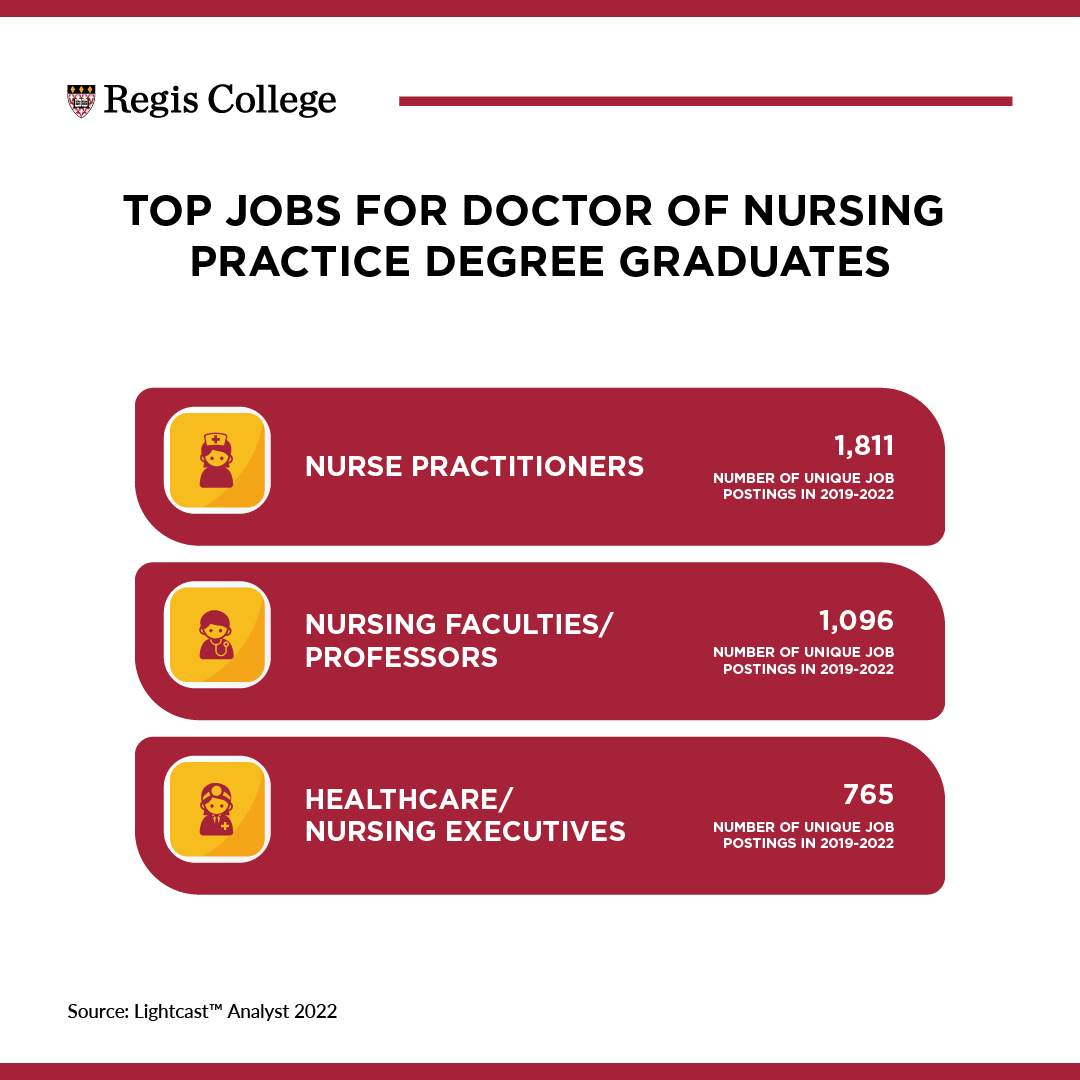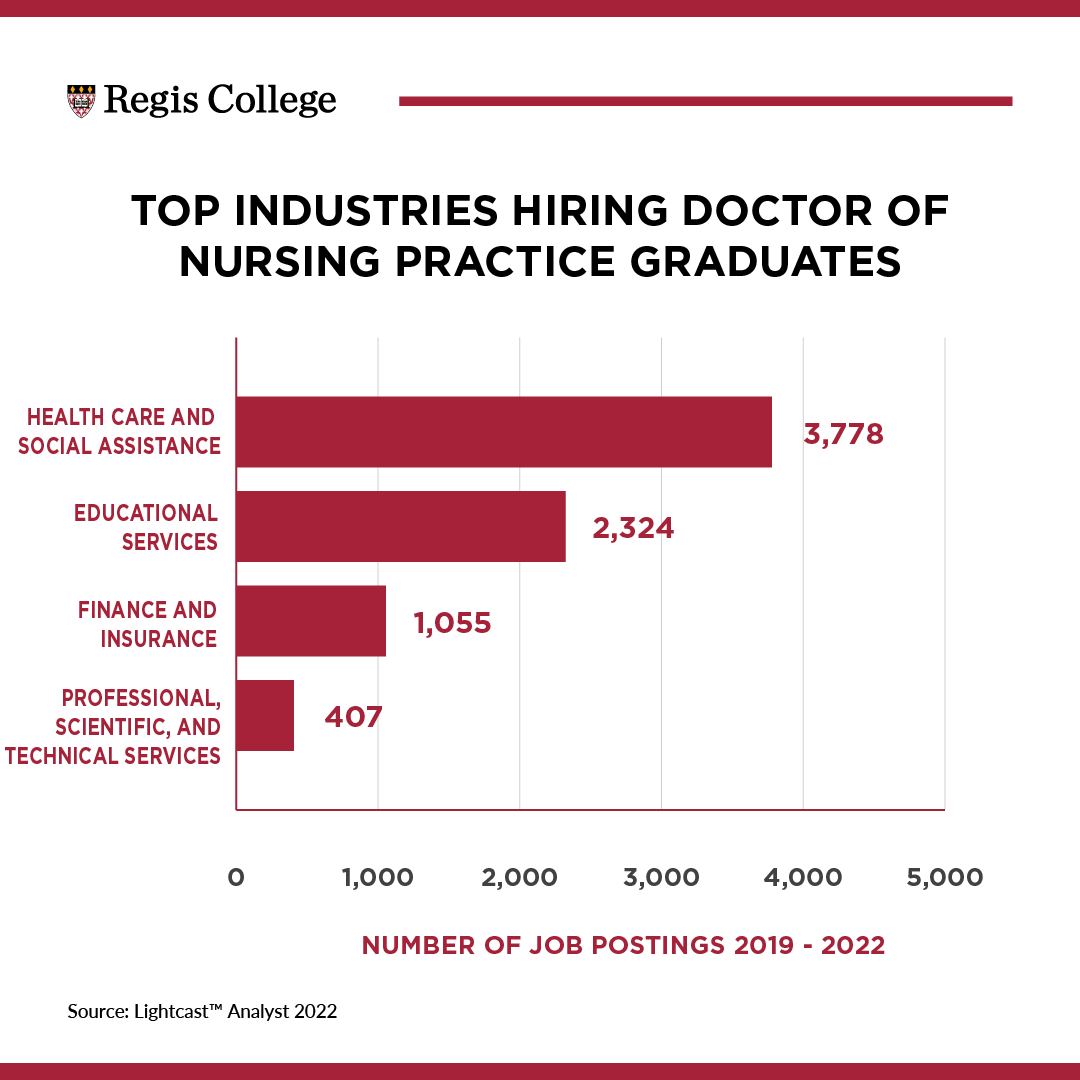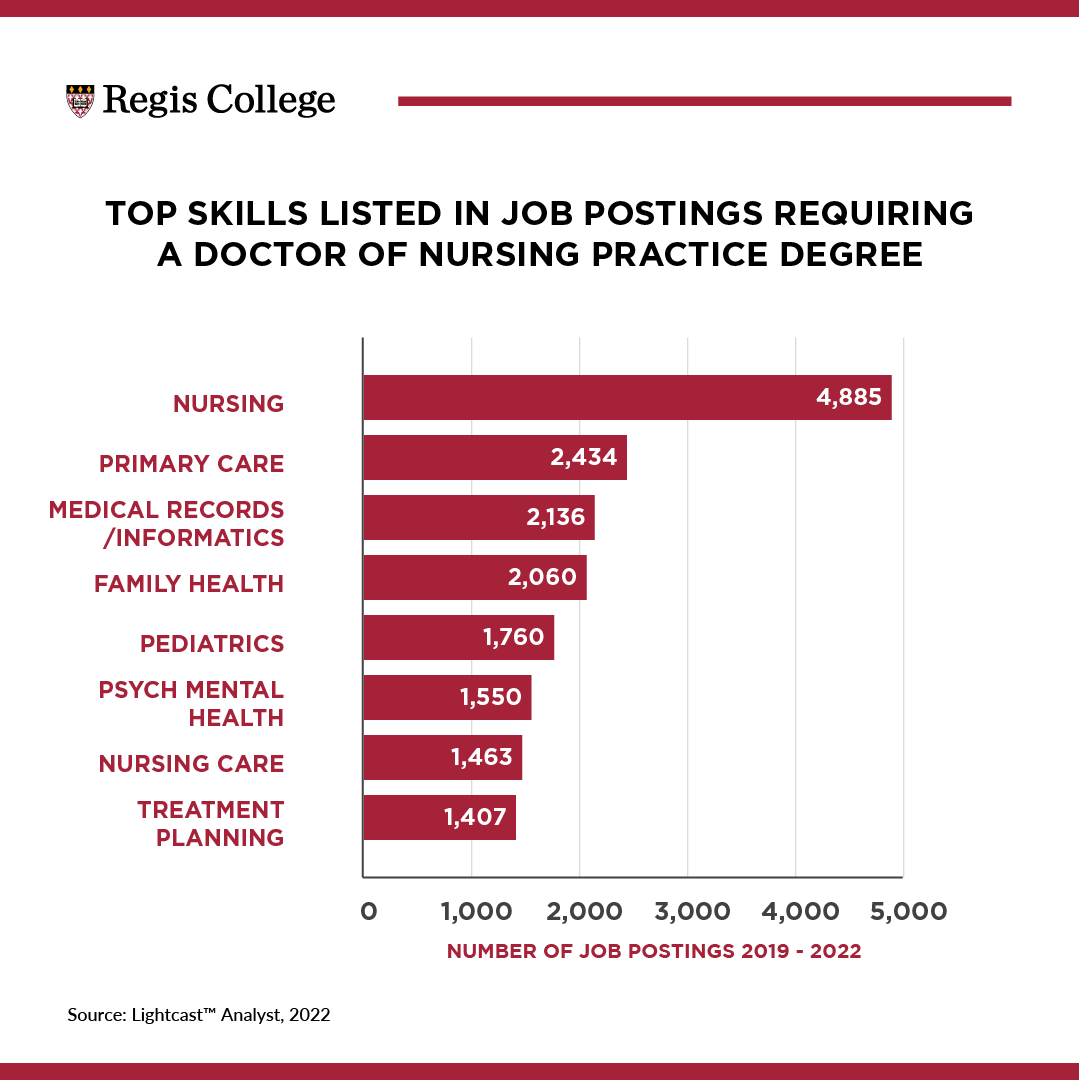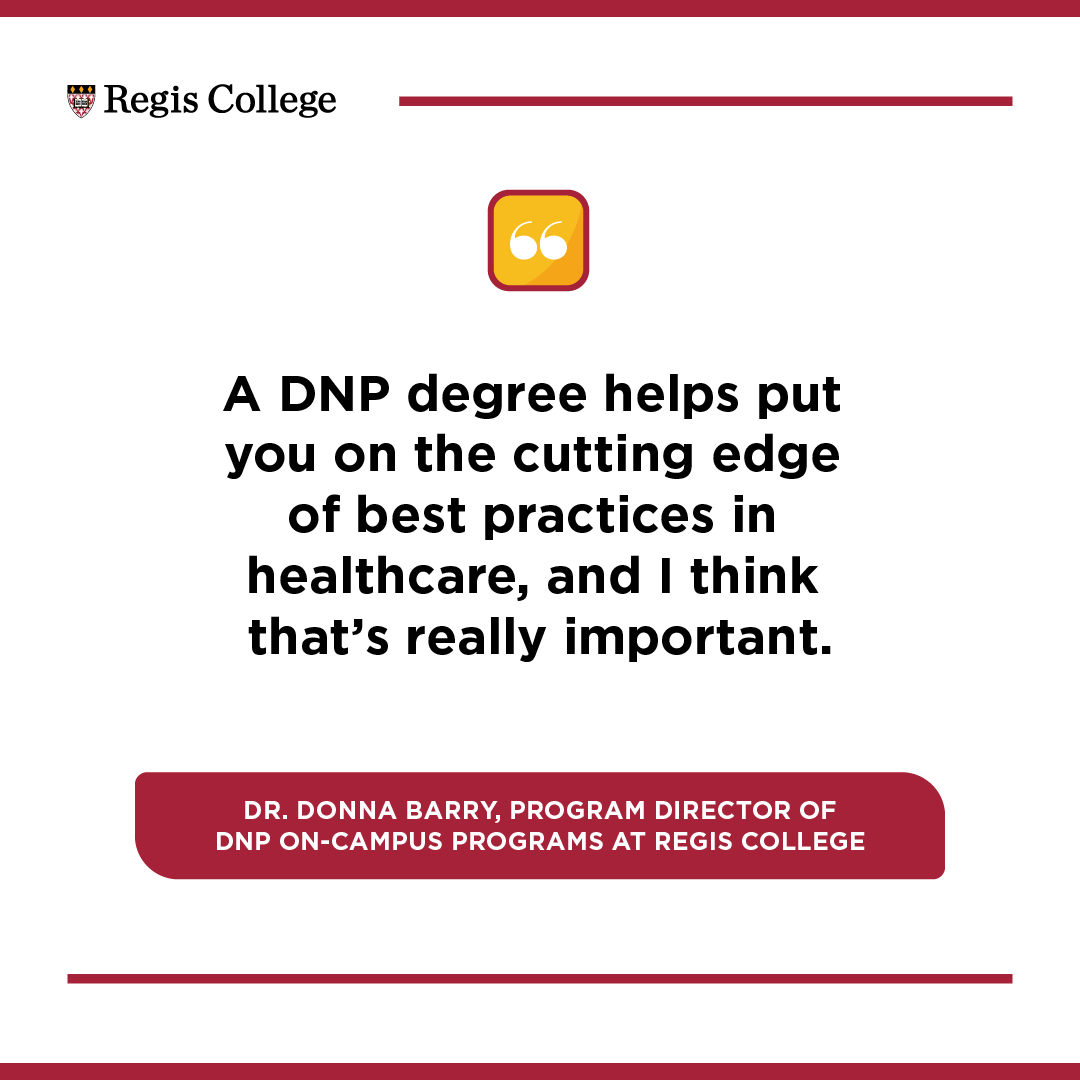As nurses and recent BSN graduates consider the best path to advancing their career in healthcare, many are asking, “What can I do with a DNP?” This terminal degree option that’s become even more necessary as of late offers professionals in the nursing field an opportunity to better affect patient outcomes using evidence-based practices.
If you’re wondering what career outcomes to expect from a Doctor of Nursing Practice (DNP), here are three nursing jobs that are starting to require, or at least prefer, this high-level degree.
Three Jobs You Can Get With a DNP Degree
There are several career paths a DNP degree can lead to, however, according to government data the top job titles include nurse practitioner, nursing faculty, and healthcare executive.

1. Nurse Practitioner
Responsible for serving as their patients’ primary care providers, nurse practitioners (NPs) spend their days working in clinical settings. In most states, when in their care, patients aren’t required to see a physician since nurse practitioners can administer physical assessments, order diagnostic tests, and prescribe medications. “All of this allows you to function as physicians do, but in a nurse practitioner role where you’ll provide a more holistic approach to medicine, depending on your specific focus,” says Carol Martin, former assistant dean of the nurse practitioner program at Regis College.
Nurse practitioners can be found working in a variety of settings including private practices, emergency rooms, clinics, and managed-care facilities. Some have a specific area of focus, but all NPs are constantly collaborating with other healthcare providers to ensure their patients receive the best possible care. While this profession is rewarding because of its positive impact on patient outcomes, the financial stability this position offers is a huge plus. According to the U.S. Bureau of Labor Statistics, the average annual salary of a nurse practitioner is $129,480.
A DNP degree is especially useful for this job title for individuals looking to take on more of a leadership role in their facility or field. Just as registered nurses (RNs) are required to complete a graduate-level degree to become a nurse practitioner, nursing leadership is often required to earn a doctorate. And since a DNP degree is rooted in evidence-based practice it’s a great way for nurse practitioners to fine-tune their patient care methods and techniques.
2. Nursing Faculty
Some DNP graduates aren’t necessarily looking to build on their current career path, but rather branch out to the education side of nursing. Nurse educators are one example of this. Less focused on direct patient care, and more so on sharing critical knowledge with nursing students, nurse educators share their “knowledge, skills, and background to help prepare the next generation of nurses,” says Dr. Donna Barry, director of the DNP on-campus programs at Regis College. They are required to stay up-to-date on current healthcare trends and ensure the academic curriculum is aligned with modern industry standards.
Much like nurse practitioners, nurse educators also have plenty of room to grow in their career. For example, they may find themselves in positions such as a dean of nursing at a college or institution. Responsibilities include leading the nursing degrees and certificate programs offered by their school, maintaining accreditation, overseeing faculty, and ensuring the integrity of the program.
A DNP degree isn’t just required for this role, but is the only degree that adequately develops nurse educators to instruct incoming nurse professionals. After going through rigorous academic classwork and evidence-based practice, nurse educators obtain a solid understanding of how to take that knowledge and turn it into practical situations for nursing students to observe and learn from.
3. Healthcare Executive
Nurses who are interested in leading teams and playing a role in the decision-making process in healthcare should consider earning a DNP to become a healthcare executive. This senior-level administrator position can hold a plethora of titles, including:
- Chief Nursing Officer
- Nursing Executive
- Director of Nursing
- Director of Patient Care
- Nurse Manager
Healthcare executives with a nursing background don’t typically provide patient care directly, but rather oversee those who do. Tasked with policy decisions, operations management, and cross-collaboration within systems, these roles are top-tier professions in healthcare.
Earning a DNP degree can significantly boost a nurse’s chances of becoming employed at this executive level. Nurses with the highest level of nursing education and several years of patient-care experience sets DNP degree holders stand out to management.
Where Can You Work?
Nurses with a DNP degree have several options when it comes to choosing a workplace. While hospitals and private practices are some of the most prominent places in the industry hiring these positions, a government report shows that the top industries for high-level nursing careers are:
- Health Care and Social Assistance
- Educational Services
- Finance and Insurance
- Professional, Scientific, and Technical Services

Nurses with a DNP degree have the ability to evaluate the best work situation for them based on personal and professional needs. Hours can often be more flexible in roles like these and advanced nurses can choose if they want to influence healthcare (and patients) directly or indirectly.
The Benefit of a DNP Degree
A DNP degree equips nurses with several important skills that will allow for continual career growth. In a government report that reviewed a large pool of job postings requiring a DNP degree, here are the top specialized skills prospective employers required:

According to Dr. Barry, a DNP degree “helps put you on the cutting edge of best practices in healthcare, and I think that’s really important.”

Take the Next Step in Your Nursing Career with a DNP Degree
Nurses today are working in an industry that is desperate for strong leaders. The COVID-19 pandemic, recent public health policies, and healthcare funding debates have created a pressure cooker surrounding the field of nursing as a whole.
As a result, employers are looking for more nurses with the educational background to take on more leadership and managerial roles to combat these issues. A DNP degree offers graduates an unprecedented chance to choose a career trajectory that can directly address this need and make a mark on healthcare today.




